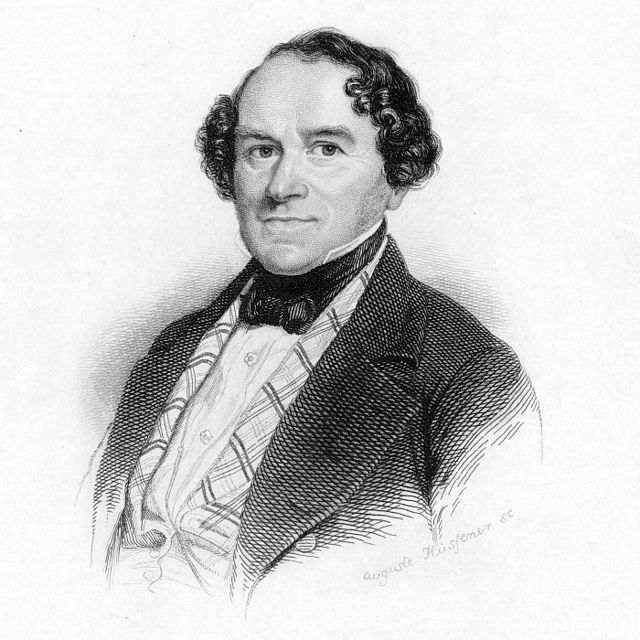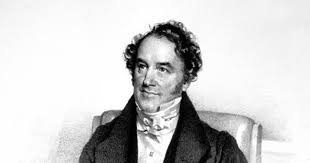Conradin Kreutzer: A Complete Biography
Introduction
Conradin Kreutzer (also spelled Kreuzer), born on November 22, 1780, was a prominent German composer, conductor, and operatic figure in the early 19th century. Best known for his operas, songs, and incidental music, Kreutzer played a vital role in shaping German Romantic opera, bridging the stylistic gap between Carl Maria von Weber and later composers like Richard Wagner. Although his name is not as well-known today as some of his contemporaries, his work left a notable imprint on 19th-century musical culture. His legacy lies in his melodic inventiveness, his theatrical instincts, and his contributions to both the stage and concert hall.

Childhood
Conradin Kreutzer was born in Meßkirch, in the region of Swabia in southwestern Germany. His family was of modest means—his father, Johann Baptist Kreutzer, was a town clerk, and his mother was a housewife. The household was musically inclined, and young Conradin received early exposure to music, learning to play the violin, piano, and organ at an early age.
Though initially expected to pursue a more stable profession, Kreutzer’s musical talent was undeniable. His family supported his artistic inclinations to some degree, especially as his skill with keyboard and string instruments became evident. These early lessons, given by local teachers and church musicians, laid the foundation for his eventual professional career in music.
Youth
In 1799, Kreutzer began studying law at the University of Freiburg, as was expected of a young man of his social background. However, his passion for music quickly overshadowed his legal ambitions. After the death of his father in 1800, Kreutzer abandoned his law studies entirely and moved to Vienna, then one of the great musical capitals of Europe.
In Vienna, he studied composition with Johann Georg Albrechtsberger, a renowned theorist who had also taught Beethoven. Kreutzer also came under the influence of the Viennese Classical style, particularly that of Mozart and Haydn. He became friends with Ludwig van Beethoven, whose music would influence his early operatic works. Although Kreutzer never achieved the revolutionary stature of Beethoven, their association provided him both personal inspiration and professional connections.
During this period, Kreutzer supported himself by teaching music and performing. His exposure to Vienna’s rich musical life and his relationships with established composers and musicians helped him refine his compositional voice.
Adulthood
In the early 1800s, Kreutzer began to compose operas, chamber music, and vocal works. His first operatic success came with “Conradin Wallenrod” (1812), produced in Stuttgart, where he had taken a post as court music director. Over the next three decades, he worked in various German cities, including Stuttgart, Donaueschingen, Vienna, Cologne, and finally Berlin.
Kreutzer’s operas found favor with audiences for their tuneful melodies and theatrical flair. Though less harmonically adventurous than Weber, Kreutzer had a strong sense for drama and character. He served as music director at the Kärntnertor Theater in Vienna and later became conductor of the Berlin Royal Opera, which marked the pinnacle of his career.
In addition to opera, he composed lieder, instrumental pieces, sacred music, and incidental music for plays. His productivity and versatility earned him great respect among his peers, and he frequently collaborated with leading librettists and theater companies of his time.
Kreutzer’s adult years were marked by professional mobility, moving from post to post, adapting to various musical environments, and tailoring his compositions to the tastes of different regional audiences. He was a practical composer, often writing to suit particular performers or performance circumstances.
Major Compositions
Kreutzer’s most celebrated opera is “Das Nachtlager von Granada” (1834), which translates to The Night Camp at Granada. It premiered in Berlin and became a mainstay in the German operatic repertoire for decades. The work features a rich blend of Romantic exoticism and German folk elements, with memorable choruses and dramatic arias that endeared it to audiences of the time.
Another important operatic work is “Melusina” (1833), based on the medieval legend of a water nymph. While less popular than Das Nachtlager von Granada, it demonstrated Kreutzer’s Romantic sensibilities and his capacity for lyrical expression.
Among his instrumental works, his Clarinet Quintet in A major and various piano compositions display charm and technical command, though they have not retained the same status as his operatic music.
Kreutzer also made contributions to the German art song tradition. His lieder—songs for voice and piano—are characterized by singable melodies and simple, effective accompaniment. Though they lack the harmonic depth of Schubert or Schumann, they reflect the popular Romantic idiom of the time.
In the realm of incidental music, Kreutzer provided scores for several plays, most notably works by Goethe and other German dramatists. His music helped bridge the gap between spoken drama and opera, anticipating developments in melodrama and music theater.
Death
Conradin Kreutzer died on December 14, 1849, in Riga (then part of the Russian Empire, now the capital of Latvia), where he had traveled to conduct a concert. Despite his success during his lifetime, his death was met with only modest recognition, and his name soon faded from popular consciousness, overshadowed by newer, more radical composers.
Nonetheless, Kreutzer left behind a body of work that was widely performed in the 19th century and admired for its craftsmanship and emotional accessibility.
Conclusion
Though not as universally remembered today, Conradin Kreutzer was an important figure in the evolution of early Romantic opera in Germany. His music—particularly his operatic compositions—combined tunefulness with dramatic structure, making them appealing to the theatergoing public of his era. He stood as a transitional composer, preserving Classical forms while embracing Romantic ideals.
Modern scholarship has begun to reassess his contributions, particularly in light of growing interest in 19th-century popular opera and forgotten repertory. Kreutzer’s life reflects the career of a working composer of his time: prolific, adaptable, and deeply embedded in the musical life of his nation.

Comments are closed